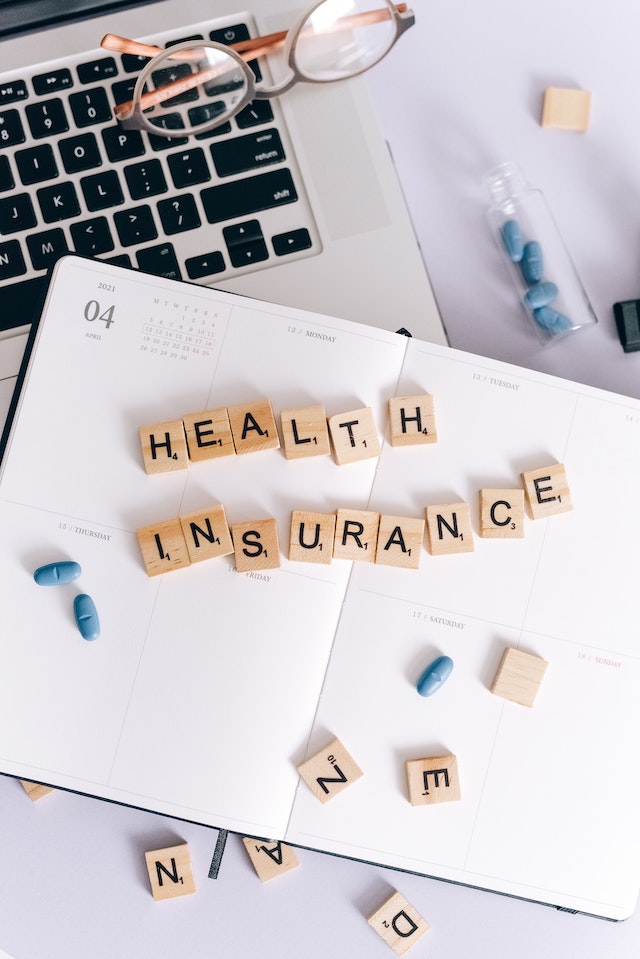8 Shocking Ways You Can Survive An Uninsured Sudden Illness!
Sudden Illness!: a blog about unexpected illnesses that are best to be planned for and how insurance can help.
Introduction
A sudden illness can be life-changing. When it comes to unexpected illnesses, the only thing you can do is prepare for the worst by making sure you have insurance in place. We thought we’d share some of our favorite tips from emergency nurses on how to survive an uninsured sudden illness!
1. Acknowledge That Sudden Illness Could Happen To You.
The first step to surviving an uninsured sudden illness is to acknowledge that it could happen to you.

When you think about an unexpected sickness, your mind probably wanders into two different directions: either the worst-case scenario or the best-case scenario. You might say things like: “I’ll never get sick” or “I’m too young and healthy for this; it won’t be me.” But these are dangerous mindsets to have when facing something as serious as a sudden illness.
If you’re overly optimistic about your health and wellbeing, it can lead to more anxiety than necessary if something does happen—and then that anxiety may make recovery more difficult.
On the other hand, being too pessimistic (or even fatalistic) can make recovery more difficult by bringing negative energy into your life. A third way of thinking—striking a balance between optimism and realism while also accepting what’s happening—is optimal for dealing with such an unpredictable crisis.*
2. People in Your Age Group Get Sick Too.
You are not alone. When you get sick, everyone else does too.
Don’t feel like you are above it or that you are too young to be sick or too old to be sick.

Most people don’t think about getting sick when they are young, but everyone gets their share of illnesses as they age.
It is important to remember that even if you feel healthy, sometimes unexpected things happen and the next thing you know, illness strikes!
No one can avoid getting sick. Even if you are healthy and strong, sometimes things happen to your body that make it sick. You might catch a cold or the flu from another person who has been exposed; or maybe you’ll get an infection from touching something unclean like doorknobs or eating undercooked food.
3. Try not to be in a state of denial about your health.
It’s easy to ignore symptoms, but it’s not always the best decision. If you feel something is wrong with your body and keep ignoring it, that can lead to an even bigger problem later on. For instance, if you don’t take care of a small cut on your finger or toe right away and it gets infected, that infection will get worse over time until it becomes severe enough that medical attention is required immediately.

The same goes for any sort of illness or injury: if you think something might be wrong with your health, even if it seems minor at first glance (or just inconveniently timed), go see a doctor! Ignoring possible symptoms could lead to more serious problems down the road when they become more difficult -and more expensive-to treat than they were originally supposed to be
4. Set Up a Savings Account for Health Emergencies or Sudden Illness.
You’re probably wondering why I’m telling you to save money for health emergencies. Well, if you don’t have a savings account set up and ready to go, then when times get tough it will be harder for you to pay for things like medication or doctor visits.

It is important that your savings account has enough money in it so that when the unexpected happens (and they will), there is enough left over after paying bills and utilities that covers any medical expenses not covered by insurance. If this isn’t possible then try saving around $100-200 per month so at least something will be saved up just in case anything ever happens!
5. Research Different Insurance Policies and Find the Right One for You.
If you have health insurance and feel like you need to increase your coverage, get advice from a financial planner or insurance broker.
Make sure that you find out what is available in your area and understand all of the options.
- Don’t just go on the advice of friends or family members who may not know much about this type of insurance.
- Research different policies and find the right one for you.
- Get help from an expert if needed!
6. Sign up for an insurance plan that provides peace of mind and security for you in case of Sudden Illness.
Insurance can be expensive, but it’s not a luxury—it’s a necessity. You need to protect yourself from the unexpected so that you don’t have to worry about financial ruin or debt when something does happen. Don’t put off getting insured because of the cost; most plans offer payment options based on your needs and budget, so start researching today!

If you’re looking for a new insurance plan, start by comparing quotes. You can do this on this website, Moneyline.sg or other comparable sites, but be sure to compare apples to apples: Make sure each quote includes the same coverage so that you know what it will cost and how much value it provides.
Next, consider your budget. If you don’t have much money to spare, it may be best to choose a plan that offers fewer benefits at a lower cost. Alternatively, if you have more disposable income available each month, you can get more coverage for less money—but keep in mind that this will increase your monthly costs.
Finally, read through your insurance policy carefully. There are many different types of policies available, including life, health, disability and personal accident insurance.
7. Get an Annual Checkup and Follow Medical Advice Regularly.
Another important step you can take to stay healthy and make sure that you will be able to get coverage if an unexpected illness does occur is to follow the advice of your doctor. The more often you see your doctor, the better chance they will have of catching any potential problems early on, which means that treatment can begin sooner rather than later.

If there’s one thing we’ve learned from studying this subject matter so far, it’s that prevention is key when it comes to avoiding unexpected illnesses!
8. Maintain a Comfortable Level of Stress so that You Do Not Neglect Your Mental Well-Being.
Managing stress is one of the most important ways to ensure you maintain your mental health. People under a lot of stress often make bad decisions and neglect their physical and mental health, which can have negative consequences. If you are feeling overwhelmed, it is important to take some time to assess what is causing you distress and then remove or lessen these factors as much as possible.

You may need help from a professional counselor or therapist if your anxiety has reached dangerous levels. Many people find that they can manage their own stress by practicing meditation or other relaxation techniques that teach them how to relax their bodies and minds when they feel stressed out.
Some good advice on how to be prepared for unplanned sudden illness or injury
It’s not easy to think about getting sick or injured, but it’s better to be prepared for any situation. Here are some tips:

- Don’t ignore health problems. If you have an illness or injury, talk to your doctor or visit a clinic right away so they can diagnose and treat it as soon as possible.
- Don’t ignore symptoms that may indicate a serious problem–like chest pain, abdominal pain, headaches and vomiting–because they could be signs of heart attack or stroke that need immediate attention!
- Research and understand the various insurance available for you, for example CI vs Early CI vs Multi-Pay CI Insurance
- Don’t wait until it’s too late to get help….If you think something is wrong with you right now…get help fast!
Conclusion
In conclusion, I hope this article has given you some valuable insight into how to prepare for an unexpected illness or injury. The best way to stay healthy is by taking care of yourself and getting regular checkups. If something does happen and it requires treatment or surgery then it’s important that you have a plan in place so your finances won’t be affected too much by the out-of-pocket expenses incurred during treatment time.



